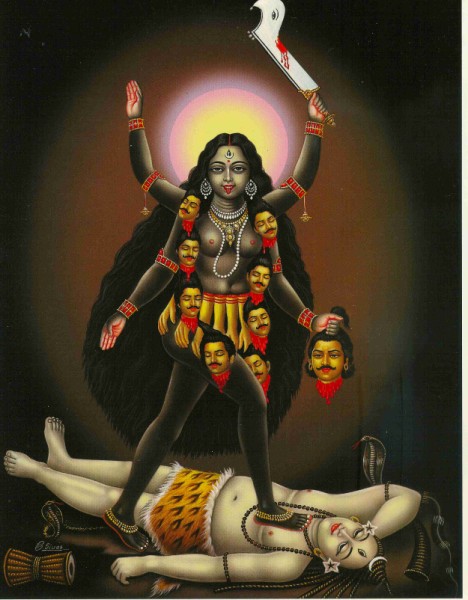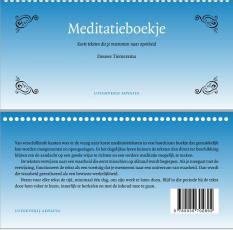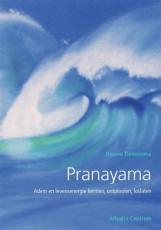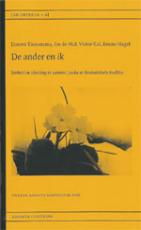Advaita Post 11-04 ---The liberating realization...
Volume 11 No 4 (February 26, 2010)
--- The liberating realization of the 'state' preceding conditions, can only take place when the identification with the I-am disappears ---

The death of I-am
The root of all problems
From a talk in Gouda on November 18, 2009
We're going to the core once again tonight, towards the deepest cause of the making of separations. When the deepest knot is unwound, duality is resolved. What is that knot?
I was at home and saw a clock and it suddenly struck me as something that conditions me. So then I put it away, so that time would go away.
Yes, it's often said: I'm in a certain situation and I notice that there I am conditioned or will be conditioned by circumstances. For example, I see a clock and I'm immediately back in the limitation of time. Someone calls my name and I'm back in a personal identity: I am so and so. I don't feel so well and I don't like that at all, but I am certainly conditioned by it. So it goes, on and on. If you are seeking liberation and see the clock, you can say: okay, I won't concentrate my attention on the clock anymore and then I'm free of time. Are you then free?
What I realize now is that I had just attached myself to it.
Exactly. So you see that removing the clock is no real solution. Seeing that is very important. First you point towards a condition that for you is restrictive and then you try to eliminate that condition in order to save or reclaim your freedom. So, the clock must be put away, or you go to the doctor for relief from your complaints, and so on. It's clear that that is no definitive help. Why not? Because you are looking to change an external condition.
But how many conditions are there? Countless, right? Countless! So then you are very busy. Also there are even more innumerable conditions over which you have absolutely no influence, associated with life or with the weather. These continue whether you like it or not. You stay stuck with the difficulties, because it doesn't work to eliminate the suffering by improving the conditions.
You're constantly working on conditions. You're constantly taking care of yourself by trying to change the terms. Then again this and then that. You are busy with this all day and every day. Putting things in order works fairly well sometimes, but not all the time, and eventually not at all. You sit with the unpleasant consequences, and have no result. It's good to look very practically at your own situation, for example, that of the clock. You see the clock and you start thinking about time. "Oh yes, it's eight o'clock; I left home so late; now we're sitting here for about two hours and then I'll go back home again; then I'll be home at about that time ". So your thought is in the context of time. In it you have a specific identity. If you don't like it, you put the clock away or direct your attention elsewhere. "OK, because happily I don't have to think about time anymore." Temporarily, because later on you are back in it once again.
So you will have to look at the deeper cause of the problem, to see if there is a possibility of liberation there. Take a very practical look at what the problem is. What is the real problem? That you felt that you were caught in time is a surface phenomenon of something deeper. What is that deeper? What is the deeper cause?
In essence you are unconditioned, timeless.
Yes, but what happens now, when you look at a clock like that and you feel caught again in time? What is the cause of the problem?
That is identification with it of course.
It is your identification with a person who thinks that time is important.
Yes, the 'I'.
Is that completely clear? You see a clock; you create time and immediately place yourself within it. So it's not about setting the clock aside. I know people who take the clock out of their room because of the ticking. So that's the surface level. As you come to view things on a deeper level, you see that it's not about the clock, but yourself. You construct yourself as a person who finds time important; you create time and place yourself as a person in time. Let's continue to look there. What is the cause of that? Why do you identify yourself as a person in time?
That's to hold the 'I' position, to keep the 'I' alive.
So under the identity of the person in time is the 'I'. What kind of 'I' is that?
Call it ego.
How do you experience that practically? What precedes the identity of the person?
A long-running problem with time perhaps?
Now you are placing it in time again. So that's no answer, it's a cycle. No, take a look to see if there is a deeper cause than time. So then you have to look deeper into yourself! What we call ego, that is the limited self-being. So you see that there is a limited self-being, when you place yourself as an individual in time. But that ego has deeper roots. What is the deeper root?
A sense of life.
Yes, the feeling of existence and the feeling that your existence is important. That's really the I-feeling, "I am", "I exist". There is immediately a certain tendency, a certain impulse, to give the "I am" form. It is a search for a form as a foothold in space, in time, with a name, with a physical form, with a self image, with an autobiography, and so forth. "I am here". And consequently that means: I am in this time, I am this and that and that, and then you get the whole jumble of a person. To see through this situation, first you have to take a look at the knot of the I-am. Can you experience this clearly, this self-being I-am. You have knowledge of it, otherwise the specific interpretation wouldn't take place. It is an I-knowledge that is prior to all interpretations: cultural, social, everything you've received from your education.
I think that it's more: I am someone.
What do you mean then by someone?
Someone who ... and then you can fill in the blanks: someone in time who, or someone who ...
Yes, sure, but when you talk about someone, what does that 'someone' mean then? Isn't that also already an interpretation? Although you already see that further interpretations are relative, still that someone position stays, you remain within the conditions which are included in that ‘someone’. But what precedes that?
Sometime when you have a day with nothing to do, when you are on vacation, and have slept well, you can awaken very slowly. Then you can become aware of the primary notion: there is an I am, without interpretation. Not: I am somebody. No, because a somebody does something. No, before the doing arises, there is the primal knot of I-am without any further qualities. It is what gives rise to additional interpretations. Within it is the impulse towards differentiation, the power to create duality.
The liberating realization of the 'state' preceding conditions, can take place then only when the identification with that I-am disappears.
Er is geen tweeheid
als je ontspannen bent
in zelf-bewustzijn
is dat duidelijk.
Boeken
Douwe schreef en redigeerde gedurende zijn leven boeken. Via onze uitgeverij zijn deze nog verkrijgbaar.



